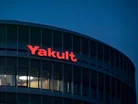Food Brands: Optimising Worldwide Gut Health Trend

Gut health has developed to be popular with consumers and significantly profitable for food and beverage manufacturers, and leading dairy drink brands Yakult, Actimel and Muller Vitality are adapting to capitalise this opportunity for growth.
Gut health is a term that has fluidity between different professions, but broadly, refers to having a healthy gut microbiome and limited digestive problems within the body.
Many consumers worldwide became aware of the concept of gut-friendly products from the launch of probiotic (microorganisms that attribute health benefits) milk drinks in the 1990’s.
Since then, the global focus on gut health has intensified, prompting major food and beverage companies to innovate and adapt.
Several factors have contributed to the increasing prominence of gut health over the years, from consumer education on health and preventative health, to product innovation, to scientific advancements.
Research on gut health worldwide has revealed its impact on various aspects of health, including immunity, mental health, and chronic diseases, and the UK's Biotechnology and Biological Sciences Research Council (BBSRC), has invested over USD$126mn in gut microbiome research over the past decade.
How leading food dairy drink brands are capitalising the growing gut health trend
According to a report by Grand View Research, the global digestive health products market size was valued at USD$39bn in 2020 and is expected to expand at a compound annual growth rate of 7.9% from 2021 to 2028, leading major companies to evolve to meet this demand.
Yakult
Yakult, the Japanese pioneer of probiotic drinks, has been expanding its product range to cater to diverse consumer preferences.
An example of this is the plant-based version of the company’s signature probiotic drink across European markets, addressing the growing demand for dairy-free alternatives, and reducing reliance on animal products.
Yakult has also invested heavily in microbiome research, partnering with several universities and research institutions globally, to explore new strains of beneficial bacteria, potentially leading to more targeted probiotic products in the future.
Actimel
Actimel is focusing on packaging sustainability to meet consumer demand, committing to 100% recyclable bottles by 2025, and partnering with recycling technology firms to develop more eco-friendly packaging solutions.
Danone's Actimel brand
The company recently introduced a range of plant-based probiotic shots, leveraging its expertise in fermentation to create dairy-free options without compromising on probiotic efficacy, addressing both health trends and environmental concerns simultaneously.
Muller Vitality
Muller Vitality, part of the Muller Group, has taken a different approach, focusing on products that combine probiotics with prebiotics (fibers that feed the beneficial bacteria in the gut).
Resulting in the company’s introduction of yoghurts fortified with additional vitamins and minerals, positioning its products as comprehensive health solutions rather than solely probiotic offerings.
Amongst all of these companies sustainability plans to reduce carbon footprints and improve supply chain sustainability, are also initiatives to source ingredients more responsibly, reduce water usage in production processes, and minimise packaging waste.
Mergers and acquisitions between major companies and the microbiome sector
With gut health becoming more and more prevalent, mergers and acquisitions have blossomed between major companies and the microbiome sector over recent years.
Nestlé Health Science has acquired Aimmune Therapeutics for USD$2.9bn to strengthen its position in the allergy and microbiome space.
And in the consumer goods sector, Unilever has been actively investing in microbiome research, acquiring probiotic skincare brand Gallinée, to bolster its presence in the growing "skin microbiome" market.
Industry analysts have also speculated that Yakult may be eyeing smaller, innovative probiotic startups to bolster its product portfolio and expand its geographical reach in the future.
Gut health implications for business worldwide
Companies can capitalise on the gut health trend by developing and marketing products that support gut health, such as fermented foods, probiotics, and prebiotics.
- Food and Beverage
- Supplements
- Healthcare
- Technology
Coupled with the development of diagnostic tools and treatments based on gut microbiome research for the healthcare industry and technological developments such as apps and devices for tracking gut health, the trend is representing a fundamental shift in our understanding of health and wellness.
Reshma Patel, Marketing Manager at Yakult UK, says that probiotics “a driving force has been a cultural shift towards preventative health measure rather than just focusing on cure”.
So perhaps in a world that is still recovering from COVID-19, the gut health trend continues to gain momentum, and businesses that can stay abreast of developments and adapt their strategies, will be well-positioned to capitalise on this growing global phenomenon.
--------------
Make sure you check out the latest news at Food Digital, a BizClik brand.
Featured Articles
Fresh investment supports TRACT in enhancing tools for sustainability in the food and agricultural sectors, aligning with EU regulations
The devastating floods in Spain have shaken up the global citrus supply, heightening challenges in the fruit juice drinks market
McDonald's has spent 40 years supporting students with scholarships & plans to continue, despite Robert F. Kennedy Jr.’s plan to Make America Healthy Again




